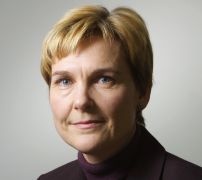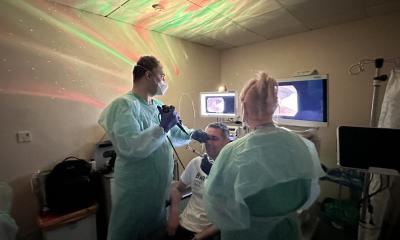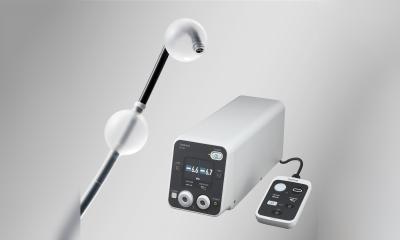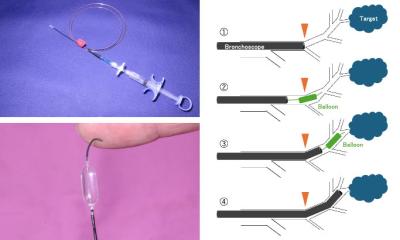Finland's colorectal cancer screening programme
Three year evaluation report
Following the proposal of the European Union to all member states, Finland established a national screening programme for colorectal cancer in 2004. The programme is the first of its kind, aiming to screen a target group of women and men between the ages of 60 and 69 by the use of faecal occult blood test (FOBT).

In Finland, nearly 2,500 new cases of colorectal cancer are diagnosed each year. About 1,100 people die of the disease annually - nearly 80% of the patients are aged sixty or above. “Our aim is to detect tumours in an early-stage, to reduce mortality from colorectal cancer,” explains Dr Nea Malila, director of the Mass Screening Registry. She was involved in planning the screening programme at the Cancer Society of Finland and recently the three year report was presented: “We use a study design to find out if the programme works in a public health care setting.”
The programme started in September 2004 in 22 of the country’s municipalities. In 2006, the screening was spread to include over 160 of the 400 Finnish municipalities. “It will continue to grow in the coming years, both in terms of national coverage and the range of age cohorts offered screening procedures,” adds Malila.
During 2004-2006, the screening was offered to nearly 53,000 people: probands bi-annually receive three faecal occult blood detection test-card and instructions how to perform the sample collection procedures on consecutive days at home. “The test-kit also includes a basic questionnaire. All samples are meant to be sent back by pre-paid mail to our central screening centre in Tampere. Logistics for mailing and analysing the material together with data storage has been tested during the first years of the programme and they are running smoothly.”The genereal compliance was 71%, whereof women had the the highest participation rate (78%), while that of men was only 63%. The compliance was also influenced by age and marital status: the oldest cohort took a more active part, while among single men the participation rate was just 46%. “The general participation has been excellent,” confirms the expert.
Out of all test persons, 804 individuals were tested positively for blood in faecal samples. “We offer Colonoscopy to all screen positives. These procuedures can be performed at regional hospitals or other public health care providers,” explains Dr Manila. So far the screening programme has found 62 cases of colon cancer. “We hope that after six-years of implementation our results will provide evidence that a screening programme using FOBT can be able to reduce mortality from colorectal cancer. We propose that colorectal cancer screening eventually will be included in the bye-law of screening, thus being available for all in the target population. In the future, we also intend to adjust the scope of the programme, for instance by extending it to 50- to 74-year-olds, which is what the EU recommends," concludes Dr Malila.
14.12.2007





